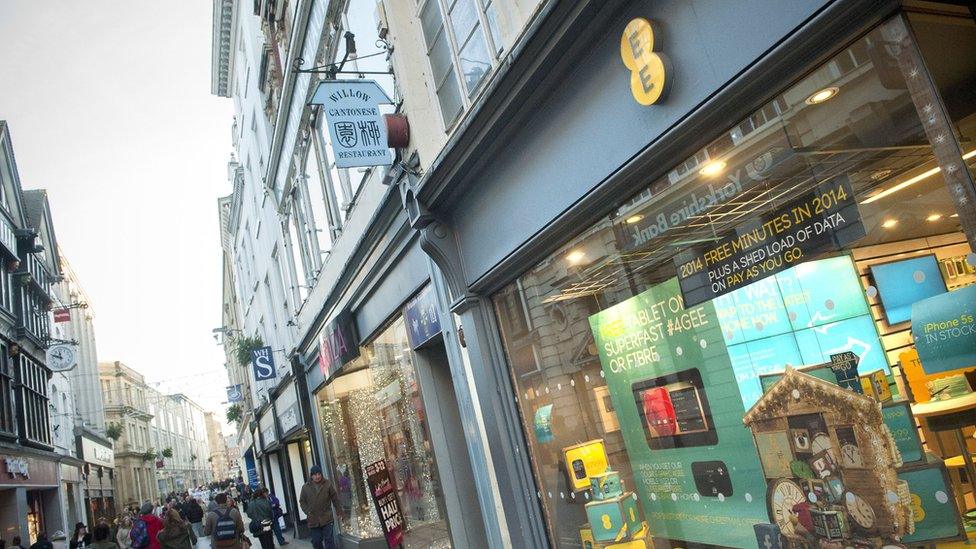EE mobile firm fined 拢2.7m for overcharging customers
- Published

Mobile operator EE has been fined 拢2.7m by the telecoms regulator, Ofcom, for overcharging tens of thousands of customers.
The watchdog found that the UK's biggest mobile network broke a billing rule on two occasions.
Users who called its 150 customer services number while roaming within the EU were incorrectly charged as if they had called the US.
That meant customers were charged 拢1.20 a minute, rather than 19p.
As a result, more than 32,145 customers were overcharged a total of 拢245,000.
'Catalogue of errors'
Despite calls or texts to the 150 number from within the EU becoming free from 18 November 2015, EE continued to bill more than 7,600 customers until 11 January 2016 who were overcharged 拢2,203.
Lindsey Fussell, Ofcom's consumer group director, told the 91热爆: "We all rely on big companies to get the most basic things right, and that includes charging the right bills... we uncovered a catalogue of errors."
Ofcom tells Today the EE fine sends a 'clear message' to the industry
The fine will go to the Treasury.
Asked whether fining companies worked, Ms Fussell said: "We think that it's a significant fine and that they are a good deterrent."
EE said it accepted the findings and apologised unreservedly to customers affected.
Most customers have been refunded, although EE could not identify at least 6,900 who were more than 拢60,000 out of pocket.
EE has donated about 拢62,000 to charity in lieu of this sum, but Ofcom has ordered the company to make further attempts to trace and refund every customer who was overcharged.
, an EE customer, said he was incorrectly billed last year by the mobile operator, which BT took over last year.
"I rang three times about this and in the end was exasperated and quite disgusted. Eventually they credited back the difference - after ranting, which I shouldn't have to - and gave me 拢20 compensation. It's left a sour taste," he said.
Current and former customers who believe they have been overcharged can contact EE on 0800 956 6000.
In October, Ofcom fined Vodafone a record 拢4.6m for "serious" breaches of consumer protection rules.
The regulator found the mobile operator had misled more than 10,000 pay-as-you-go customers, charging them for top-up credit but "providing nothing in return", and had broken the rules on handling customer complaints.
- Published26 October 2016